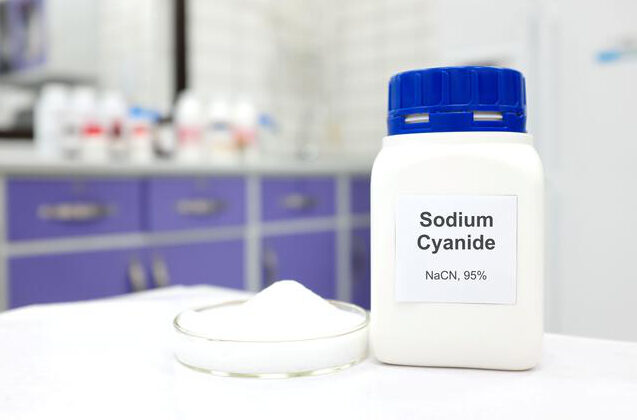
DGTR recommends anti-dumping duty on sodium cyanide imports
NEW DELHI : The Directorate General of Trade Remedies (DGTR) has recommended imposition of anti-dumping duty on Sodium Cyanide (NaCN) imported from China, European Union (EU), Japan and Korea. The DGTR initiated and conducted a thorough investigation, providing ample opportunity for all concerned parties to provide relevant information. Sodium cyanide is used in bulk drugs and in many organic syntheses and pharmaceutical intermediates.
The DGTR has recommended the imposition of such revised definitive anti-dumping duties on the import of the subject goods, originating in or exported from Chine, EU, Japan and Korea for a period of 5 years from the date of notification to be issued in this regard by the Central Government.
The Authority had initiated an anti-dumping investigation on March 31, 2023 based on an application filed by Hindusthan Chemical Company and United Phosphorous Limited, in accordance with the Customs Tariff Act, 1975, and the Customs Tariff (Identification, Assessment and Collection of Anti-dumping Duty on Dumped Articles and for Determination of lnjury) Rules, 1995, (AD Rules, 1995).
The DGTR had also earlier in the month of October, 2023 asked all 21 registered parties or entities in the anti-dumping investigation case of NaCN to provide non-confidential versions (NCV) of their submissions on priority. As per Rule 6 (6) of the AD Rules “The DGTR may allow an interested party or its representative to present the information relevant to the investigation orally but such oral information shall be taken into consideration by the DGTR only when it is subsequently reproduced in writing.”
Following a thorough examination of submissions from concerned parties and available facts, the Authority has reached several conclusions regarding the imposition of anti-dumping duties on Sodium Cyanide imports.
The key findings indicate that the application for anti-dumping duties has been filed by Hindusthan Chemical Company and UPL Limited. The product under consideration is Sodium Cyanide, regardless of its form. The domestic industry produces a like article to the imported product. Importing activities by the applicants occurred before the commencement of commercial production by UPL Limited, with no imports during the specified period of investigation.
The applicants satisfy the requirements of Rule 2(b) and Rule 5(3) of the anti-dumping rules. Positive dumping margins have been determined for Sodium Cyanide imports from the subject countries.
The domestic industry has suffered injury, evidenced by factors such as high volumes of dumped imports, suppressed prices, production declines, and financial losses despite capacity expansion.
The injury suffered by the domestic industry is solely attributable to the dumping of Sodium Cyanide in the Indian market. The domestic industry has made significant investments to bridge the demand-supply gap, but economic viability concerns have led to production suspensions.
The domestic industry had to sell at losses to increase its market share. The market share of the domestic industry is significantly below the level which it can cater. The domestic industry is suffering financial losses and a negative return on capital employed. Injury suffered by the domestic industry is only attributable to the dumping of the product in the Indian market. The domestic industry has made significant investment (Rs. 500 crore) to bridge the demand-supply gap. The current situation of dumping has forced domestic players to suspend production due to economic unviability.

